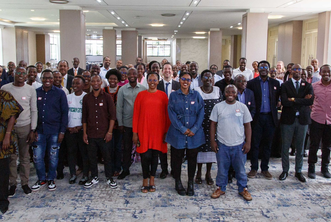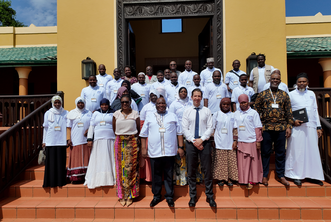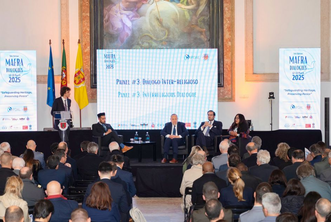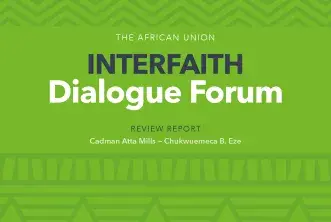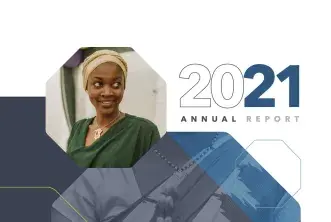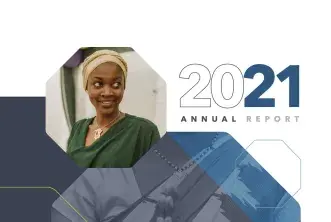Africa Region
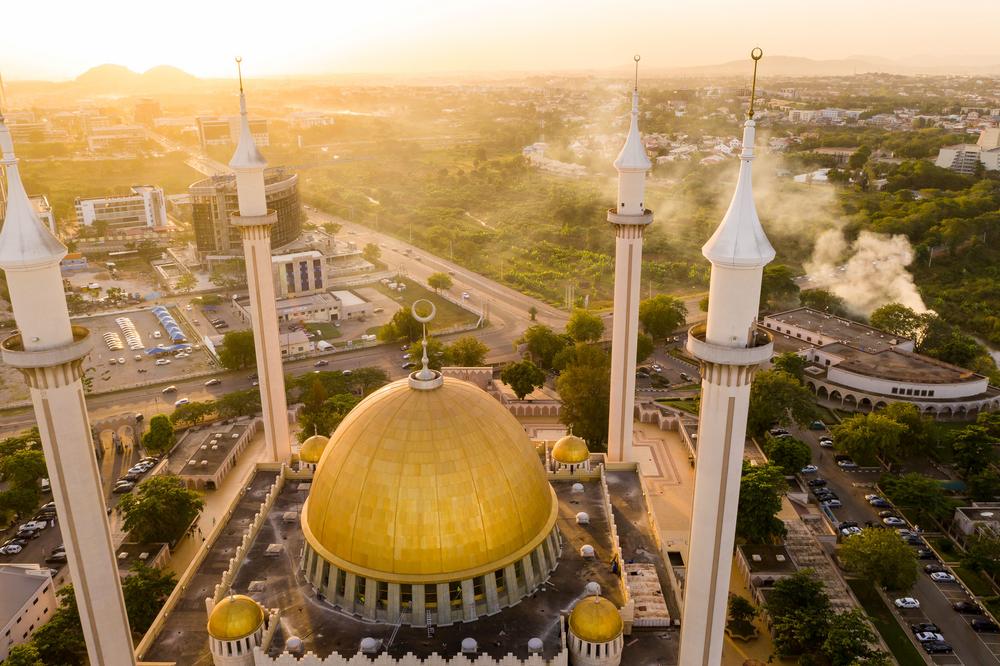
KAICIID’s work in Africa focuses on promoting peace and reconciliation through interreligious and intercultural dialogue, particularly in regions experiencing conflict, displacement, and social fragmentation. Our key initiatives support peacebuilding by fostering dialogue among religious leaders, policymakers, and civil society, addressing the root causes of conflict, and strengthening social cohesion. In countries such as the Central African Republic (CAR), Mozambique, and Nigeria, KAICIID’s programmes focus on building networks of cooperation among religious communities, enhancing local peace efforts, and creating inclusive spaces for dialogue.
The main aim of the Africa Programme is to ensure that religious, traditional, and other relevant actors are fully engaged in supporting sustained peace and security initiatives, working together to uphold Human Dignity and realise the 2063 African Union Agenda.
Working towards the achievement of the mentioned outcome, the Nigeria and CAR Country Programmes, as well as the Mozambique initiative, are used as anchors to the interventions at the regional level. Specifically, projects piloted and implemented at the national level are then showcased during regional fora for potential replication and upscaling in other countries of the region.
Central to our work is the engagement of religious leaders and local actors in conflict resolution, with targeted training that empowers communities to prevent violence and build peace. In Mozambique, our initiatives focus on reducing religious and ethnic tensions exacerbated by the ongoing conflict in the Cabo Delgado region. Similarly, in the Central African Republic, KAICIID’s work with journalists and media professionals is aimed at countering hate speech and misinformation, promoting responsible reporting, and supporting peace efforts. Through these initiatives, we are fostering a culture of transformative dialogue that strengthens communities, reduces conflict, and promotes long-term stability across the region.
We Convene
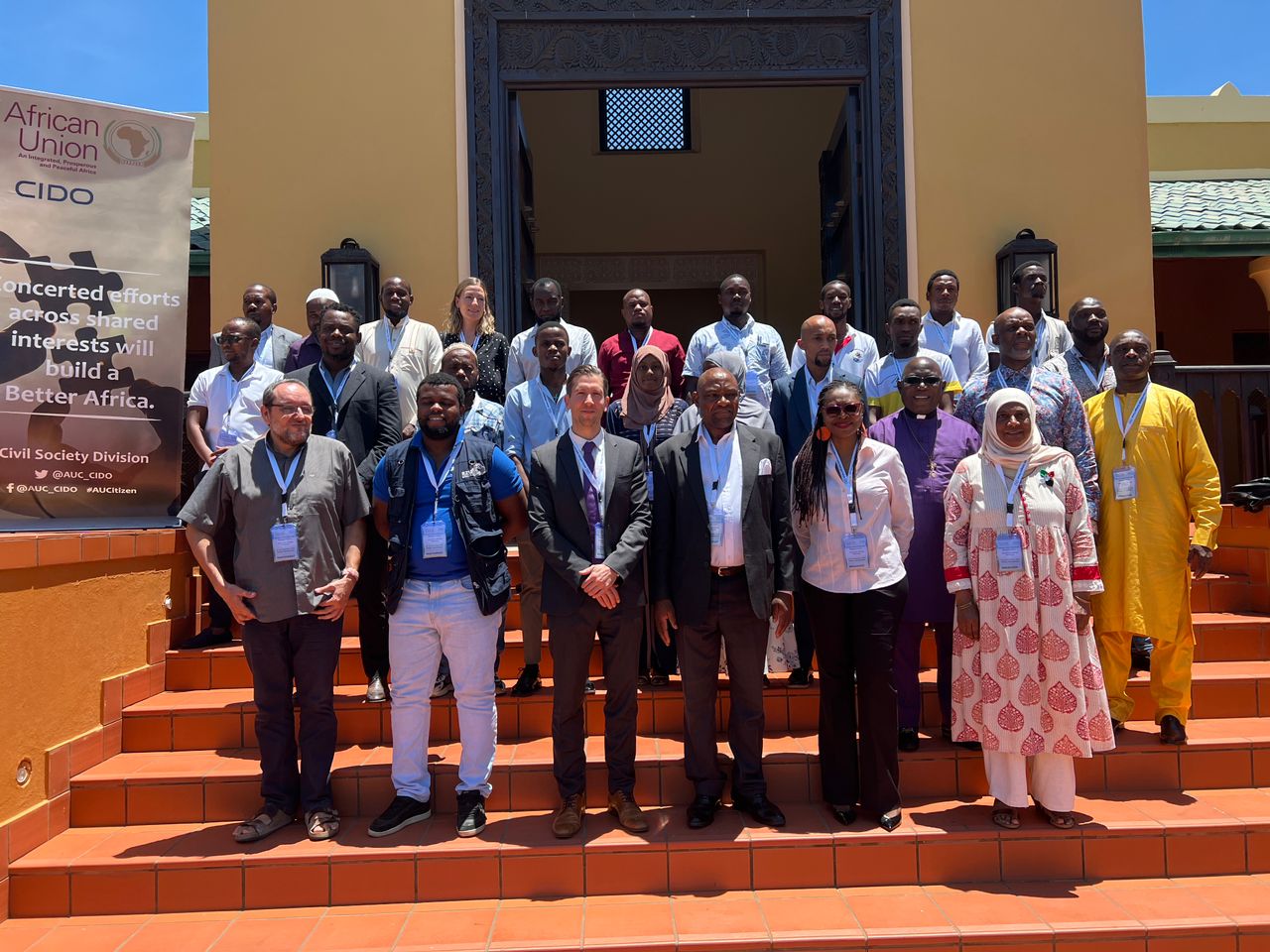
KAICIID brings together key actors across Africa to facilitate dialogue and collaboration aimed at addressing conflict and fostering peace. One of our most impactful convening efforts is support for the Interfaith Dialogue Forum for Peace (IDFP) in Nigeria, which brings Christian and Muslim leaders together to address the religious dimensions of conflicts in the country. This platform fosters collaboration among religious communities to develop joint strategies for peacebuilding and conflict prevention. The forum serves as a model for transformative dialogue across the region, particularly in areas where religious tensions have contributed to violence.
KAICIID also plays a vital role in supporting the Regional Citizens' Dialogue Programme (RCDP), an initiative aimed at preventing and responding to unconstitutional changes of government across West Africa. By convening religious leaders, civil society, and policymakers, the RCDP promotes inclusive governance and peaceful dialogue as tools for safeguarding democracy and human rights. Through this platform, KAICIID helps foster citizen engagement in governance processes, empowering local communities to address political instability and build more resilient, peaceful societies.
In Mozambique, KAICIID has convened local religious leaders from Cabo Delagado, an area heavily affected by conflict and displacement. Here, our efforts focus on creating opportunities for dialogue among religious and ethnic communities, promoting mutual understanding, and addressing the challenges posed by displacement and extremism. These dialogues help to build trust and resilience in the community, laying the groundwork for sustained peace and cooperation.
We Build Capacity
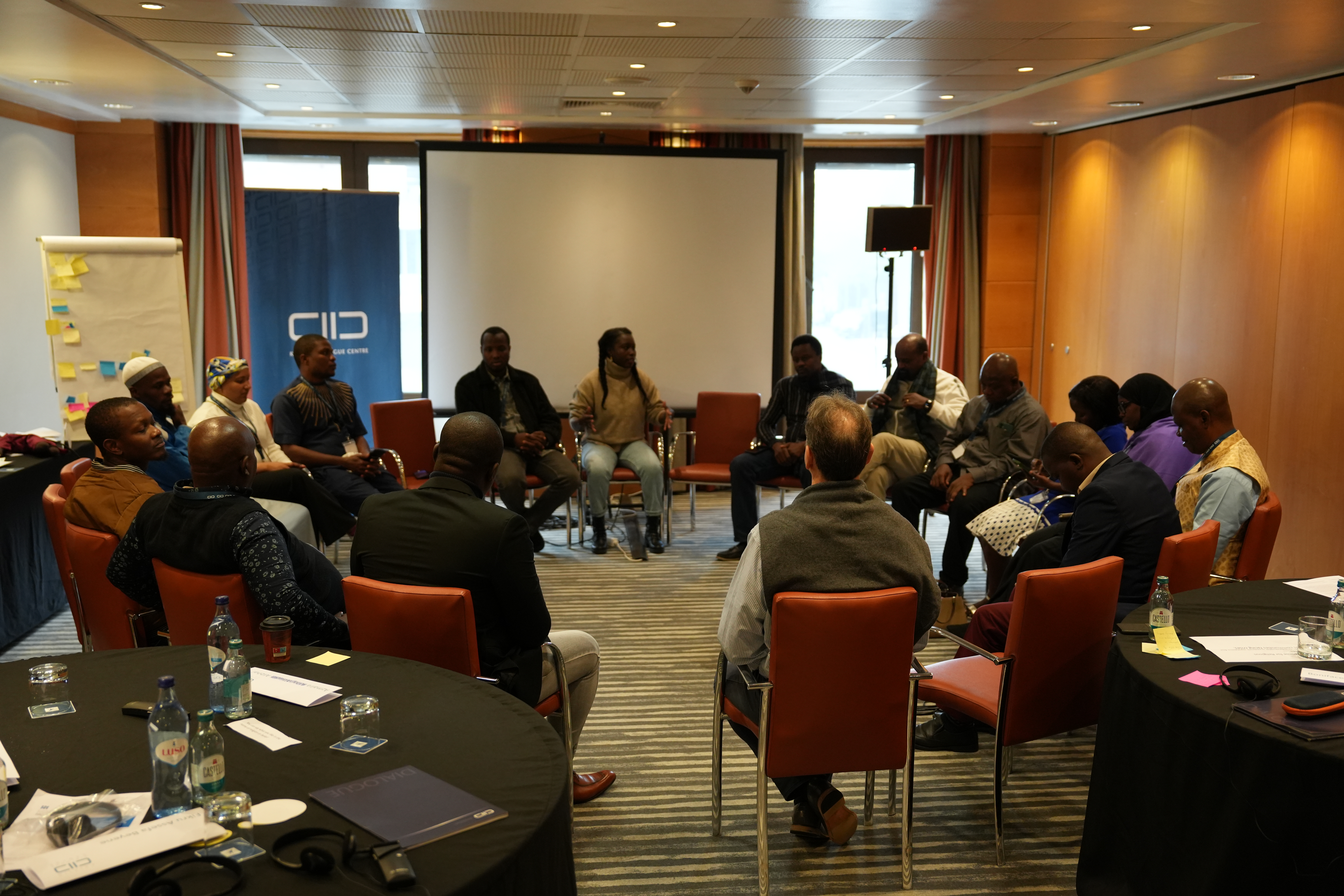
KAICIID’s capacity-building efforts in Africa are designed to empower local actors with the skills and knowledge necessary to lead dialogue initiatives and contribute to peace efforts. In the Central African Republic (CAR), KAICIID has focused on training journalists and media professionals through the Network of Journalists Sensitive to Conflict (RJSC). This initiative aims to counter hate speech and promote responsible journalism, equipping media professionals with the tools to report on conflicts in a way that promotes peace rather than exacerbates tensions. By fostering a network of journalists committed to conflict-sensitive reporting, KAICIID contributes to the overall peacebuilding process in the Central African Republic.
In addition to media training, KAICIID also provides support to interreligious platforms, such as the Plateforme des Confessions Religieuses de Centrafrique (PCRC), which plays a key role in reconciliation efforts in the Central African Republic, as well as to developing the capacity of Local Peace and Reconciliation Committees in partnership with the Ministry for National Reconciliation. Our capacity-building initiatives equip religious and community leaders with the skills needed for effective dialogue facilitation and conflict resolution, ensuring that these leaders are at the forefront of peace efforts in their communities.
The KAICIID Fellows Programme, particularly through its National Chapters in the Africa Programmes focus countries, is another crucial element of our capacity-building work, providing in-depth training to religious leaders, educators, and civil society actors across the African continent. The Africa Programme cooperates with the KAICIID Fellows in implementing an educational pilot project aiming to include Interreligious Dialogue Theory in the curricula of the Conflict Resolution Master of the University of Bangui. This innovative project allows for the development of a sustainable peacebuilding ecosystem, where dialogue practitioners on the ground, mainly members of the Local Peace and Reconciliation Committees and the PCRC inform the theory studies at the University, to then apply this knowledge feedback into the practice, providing a positive feedback loop that will sustainably advance the field of IRD throughout the CAR.
We Advance Policy and Practice
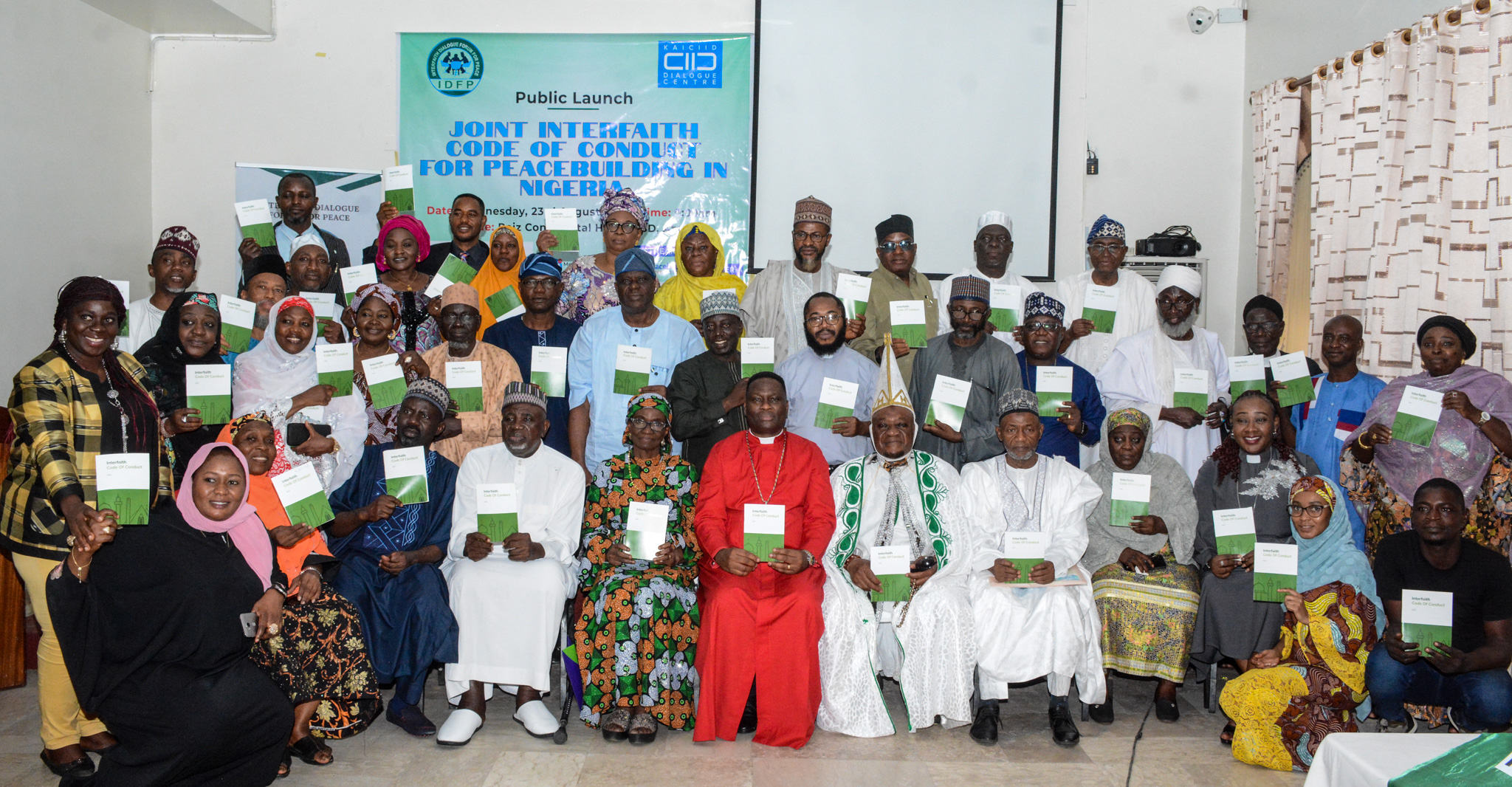
KAICIID’s work in Africa includes strategic partnerships with key organizations such as the African Union (AU) and its Economic, Social, and Cultural Council (ECOSOCC), which given its ability to provide advisory opinions through their sectoral committees directly to the Permanent Representatives Committee (PCR), are a key partner through which to engage in the development and provision of policy recommendations. These collaborations focus on integrating interreligious and intercultural dialogue into broader peacebuilding and development frameworks across the continent. By working with the African Union, KAICIID contributes to high-level policymaking efforts aimed at promoting peace, stability, and sustainable development through the inclusion of religious and community leaders in conflict resolution and governance processes.
Through our partnership with ECOSOCC, KAICIID supports initiatives that bring together religious actors, policymakers, and civil society to address pressing regional challenges, including migration, violent extremism, and social inequality. These collaborations ensure that the voices of religious and cultural communities are included in shaping policies that affect peace and social cohesion. By aligning with the African Union’s agenda for peace and security and its 2063 Agenda overall, KAICIID helps promote a culture of dialogue and cooperation that strengthens the foundations for long-term stability across Africa.
In Nigeria, through the IDFP platform in collaboration with the Insitute for Peace and Conflict Resolution, the Network for Policy Makers and Religious Leaders to support reconciliation, peace and security in Africa was established in 2021. This network aims to influence policy directly through the provision of recommendations to integrating principles of IRD and conflict sensitive approaches in policies at the national level. Complimentarily, with the National Human Rights Commission and two faith-based organizations in Nigeria - The Kukah Centre and Nasrul-lahi-l-Fatih Society, KAICIID supports the functioning of a mechanism to monitor and report on violations of freedom of religion.
